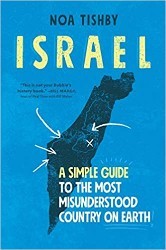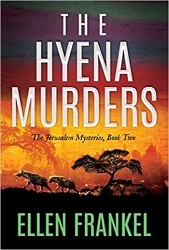In a thoughtful addition to the young-adult genre, Ruth Marks Eglash, a former Jerusalem correspondent for The Washington Post, pairs her journalistic eye with her vast imagination in her coming-of-age novel, Parallel Lines. The book tells the story of three girls from widely different worlds who find themselves collectively confronting an antisemitic terrorist attack on a Jerusalem light rail.
Eglash first introduces her readers to Tamar, a precocious secular Israeli who must learn to stand up to casual anti-Arab bigotry in her school. In the process, she falls for her friend Ami, who is Palestinian.
The reader then encounters Nour, a Palestinian girl who tries to make sense of the cycles of violence and hatred between Arabs and Israelis. While people close to her protest and plot, Nour questions the efficacy and wisdom of their actions. She knows she is a pariah for checking her anger, but she yearns for a day when she can simply travel to the Tel Aviv beach free from danger.
Finally, the reader meets Rivki, an ultra-Orthodox girl who questions her place within her religious home. Early in the novel, while she is in the hospital, she meets a group of teenagers who introduce her to social media and plant seeds of doubt about her religious background. This soon drives a wedge between her and her family — especially between her and her sister, who is about to be married.
Each girl is on a journey of self-discovery, and Eglash does a good job taking her readers along for the ride. She is at her best when she writes about conflict, which this book has no shortage of. The major question for each girl, and the overarching theme of the book, is whether to accept the status quo of one’s circumstances or to look outside one’s community for something better.
Given that this is also a question that comes with growing up, young adults will see themselves in these girls’ struggles. Though the events of their lives differ, all three yearn to find their place in the world, to fit in and be accepted.
Throughout the novel, Eglash presents numerous perspectives about the Palestinian-Israeli crisis. Because these insights are coming from the girls, Eglash manages to be instructive without being overly preachy. Readers will walk away with an understanding of just how messy the conflict is, but also with the hope that somewhere on the streets of Israel are young people — like Tamar, Nour, and Rivki — who have the resolve and spirit to address it.
Rabbi Marc Katz is the Rabbi at Temple Ner Tamid in Bloomfield, NJ. He is author of the books Yochanan’s Gamble: Judaism’s Pragmatic Approach to Life (JPS) chosen as a finalist for the PROSE award and The Heart of Loneliness: How Jewish Wisdom Can Help You Cope and Find Comfort (Turner Publishing) which was chosen as a finalist for the National Jewish Book Award.





